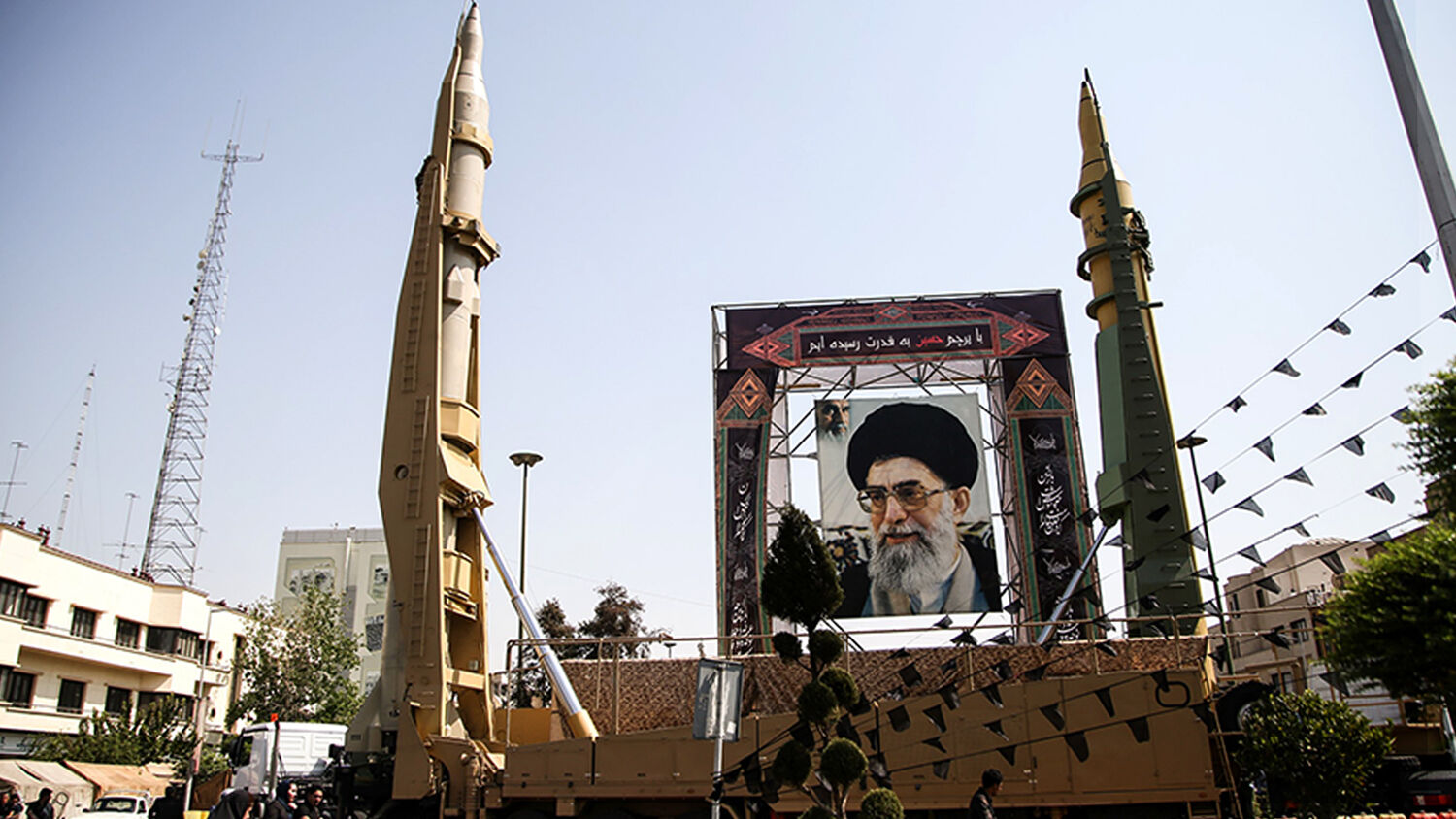
Was Iran’s Missile Test Fake, and Does It Matter?
On Saturday, Iran announced that it had tested a new ballistic missile capable of traveling 1,200 miles and carrying multiple nuclear warheads. The missile was unveiled at a military parade on September 22. However, Fox News reported Tuesday that the missile launch may have been faked. The video released of the launch is reportedly actually footage from a failed missile launch in January.
If Saturday’s missile launch did happen, Iran proved that it has medium-range ballistic missiles with a range of 2,500 miles that can strike Israel, as well as American troops in the Middle East. An Iranian news agency called the weapon “Israel’s nightmare.”
It is possible that the missile malfunctioned or failed, causing Iran to upload old footage. But anonymous sources for Fox News said that United States intelligence agencies “picked up no indication” of a missile test on their radars.
The new missile is reportedly based on a North Korean design. This gives credibility to the suspicion that North Korea has been sharing missile technology with Iran. Jeffrey Lewis, a missile proliferation expert, told Fox News, “The very first missiles we saw in Iran were simply copies of North Korean missiles. Over the years, we’ve seen photographs of North Korean and Iranian officials in each other’s countries, and we’ve seen all kinds of common hardware.”
After the missile test was announced, U.S. President Donald Trump tweeted:
He referred to the Joint Comprehensive Plan of Action (jcpoa), which he has recently criticized heavily. Commonly known as the “Iran nuclear deal,” the plan was implemented on Jan. 16, 2016. Less than a month later, Iran test-fired missiles capable of carrying nuclear warheads, a blatantly provocative move that disdained the nuclear deal as well as a 2015 United Nations resolution. However, although the U.S. Treasury Department has sanctioned Iran for its missile testing, neither the jcpoa nor UN Security Council Resolution 2231 expressly forbids missile tests.
In his first address to the UN on Tuesday last week, the president condemned the deal, saying that “we cannot abide by an agreement if it provides cover for the eventual construction of a nuclear program.” He included Iran in a “small group of rogue regimes” and said that the nuclear deal was an “embarrassment” for America. Some who previously supported the deal are also beginning to privately admit its flaws.
Iranian President Hassan Rouhani said at Friday’s military parade: “We will increase our military power as a deterrent. We will strengthen our missile capabilities. We will not seek anyone’s permission to defend our land. Not only will we fortify our missiles, but our ground, navy and air forces will always be supported by the people.”
Iran continues its military buildup because it knows the U.S. will do nothing to stop it. The National Interest and other reputable newsmagazines believe that Iran already has the largest arsenal of ballistic missiles in the Middle East. They also suspect that Iran is still working toward building its own nuclear weapons.
This is why Iran’s friendship with North Korea is so concerning. North Korea already possesses nuclear weapons, and it has already shared missile technology with Iran. Iran has vehicles for nuclear warheads—all it needs to develop is the warheads themselves. Melanie Phillips said in January of last year, “There are some who believe [Iran] already has [a nuclear bomb], or at least already has access to nuclear weapons ….”
Israeli Defense Minister Avigdor Lieberman said, “Imagine what would happen if Iran would obtain nuclear weapons, something which it strives to do. We must not allow this to happen.” He added that the alleged missile test “is also further proof of Iranian aspirations to become a world power that threatens not only the Middle East, but all the countries of the free world.”
Trumpet editor in chief Gerald Flurry called the nuclear deal with Iran “the worst foreign-policy blunder in American history.” He predicted that Iran would not hold up its end of the agreement, writing:
Will Iran cheat? History says yes. When has it not cheated after making a significant agreement with the West?
Anybody with common sense knows you don’t negotiate with nations that yearn for your destruction. America negotiated with the worst terrorist-sponsoring nation on Earth, and just invited it into the community of nations. Is this leading to peace? Read Matthew 24:21-22 to see where it’s leading. Nuclear bombs and weapons of mass destruction are about to be put to use on a scale this world has never seen!
Maybe Iran did fake the missile test on Saturday, and maybe it did not. But a failed launch or a nonexistent launch does not change the much larger, much more important fact that Iran is developing nuclear weapons and the capability to launch them.
The Bible indicates that Iran will continue to develop missiles and seek nuclear weapons. The nuclear deal does nothing to stop this pursuit. Iran will also continue its belligerence against Israel and the West. Daniel 11 prophesies that the king of the south (radical Islam led by Iran) will push against Europe. That is exactly what this terrorist-sponsoring, nuclear-ambitious nation is already doing! We are watching this prophecy unfold with each new report of Iranian weapons development.
To learn more about what is in the near future for Iran, request a copy of The King of the South, by Gerald Flurry.
